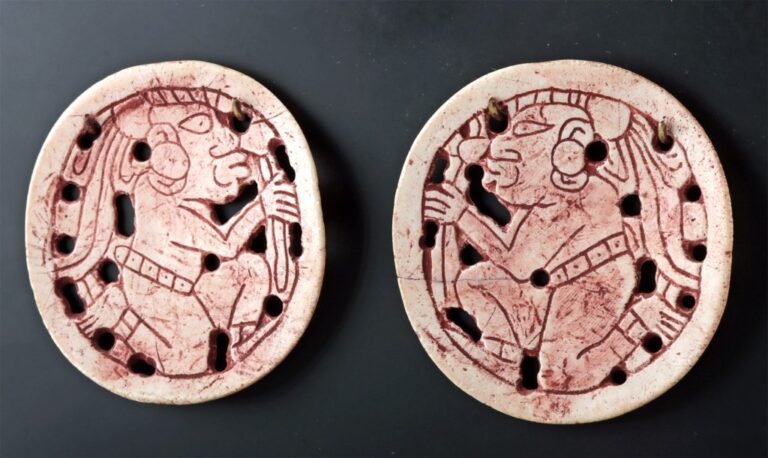A Colorado auction house recently sold several historic Mayan artifacts, despite requests from Mexican officials to cancel the sale.
On March 26, the Minister of Culture of Mexico, Alejandra Frausto Guerrero published on social networks that Artemis Gallery in Louisville, Colorado, was selling “pieces that pertain to the cultures of Mexico” and demanded that the business stop selling them. “There is nothing more immoral than putting a price on a nation’s heritage,” wrote Frausto Guerrero. It was tagged with the “My heritage is not for sale” campaign.
Mexico’s first lady, Beatriz Gutiérrez Müller, also wrote a post about the March 28 auction. in social networks that day She wrote in Spanish that the pieces sold by Artemis Gallery were “illegally stolen from our territory” and tagged it with #mipatrimoniosevende.
Of the 25 articles that Mexico wanted, artnet reported that 16 of them were sold, with some of the “approved lots” still available for purchase at the auction house and on the gallery’s website. These include a pair of matching Mayan ear flares, a stucco portrait of a Mayan royal woman from around 550 to 900 AD, a Mayan jadeite pendant with the head of the god Kionich Ahau, and a large polychrome ceramic jar dating from 1200 to 1450. CE
Bob Dodge, the co-owner of Artemis Gallery, said ARTnews in an email statement that “all major museums and all major auction houses have offered items that were later identified as stolen. It’s not out of greed, insensitivity to cultural heritage, wanting to break any law, etc. There are some bad players in this field and honest galleries like us sometimes cheat”.
In response to the report of Denver Post that the Artemis Gallery sold pieces that were later determined to be looted, including two Egyptian pieces, Dodge said ARTnews that one of the items had documentation dating back to the 1920s, “which would have made it legal” but was found to be a forgery.
As for the claims made by Mexican officials, Dodge said the country has filed “no fewer than 10 complaints” against the Artemis Gallery over the past decade.
“To them, every piece is stolen, every piece is important, and every piece belongs where it was made. These complaints have been reviewed by both the FBI and Homeland Security (HIS/ICE) and no piece has ever been determined to be stolen or illegal “.
Dodge added that, in five cases, employees of the Consulate of Mexico visited their facilities demanding the repatriation of items. He called it illegal and that the “Your Assets Are Not For Sale” campaign led to a flood of obscene e-mails from Mexican e-mail addresses.
The Artemis Gallery website, and Dodge’s statement, emphasized a US law that allows the sale of artifacts with a clear provenance established after the 1970 UNESCO Convention. “All items legal to buy/sell under the US Statute covering the Cultural Heritage Code 2600, CHAPTER 14, and are guaranteed as described or your money back.”
Regarding the issue of ethics, Dodge cited national and state laws that prohibit the sale of ivory. “While I strongly believe in saving all elephants from senseless slaughter, I’m not sure that certain states banning the importation of mammoth ivory (a species that has been extinct for the past 10,000 years) across their borders has had any positive effect on elephant population.”, wrote in his statement a ARTnews. “However, we still follow those laws to the letter.”
“My heritage is not for sale” campaigns against auction houses and museums have succeeded in repatriating more than 13,500 archaeological and historical objects from 15 different countries since 2018. However, archaeologists and INAH officials said ARTnews in an earlier report that Mexico’s heritage conservation sector has been hurt by funding cuts, labor shortages and other factors that could prevent looting and theft of artifacts in the first place.
Demands by Mexican officials that U.S. auction houses USA stop selling Mexican artifacts will probably continue to produce, as INAH said earlier. ARTnews “It is an obligation of the Mexican government to continue to present the corresponding complaints and to continue to raise its voice to prevent the trade of this type of objects that are sacred to Mexicans.”


